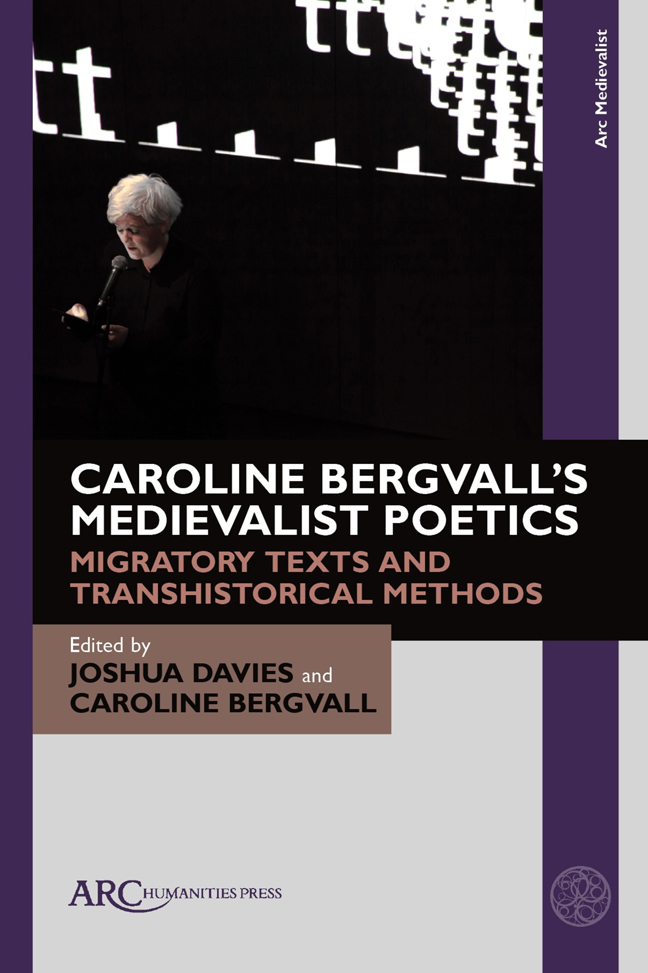Chapter 19 - “A happy combimess, simpel”: Forms of Activism and Collective Resistance in Alisoun Sings
Published online by Cambridge University Press: 20 February 2024
Summary
What does resistance look like in these dark days?
CAROLINE BERGVALL’S INSTALLATION Say: “Parsley” was first staged at Spacex Gallery in Exeter in 2001. The title referred to the 1937 “Parsley Massacre,” in which the Dominican Army used two different pronunciations of the word “parsley” (pere-jil)—Haitian Creole and Spanish—as a means of distinguishing between citizens. Those who rolled the “r” in “perejil” were identified as Spanish; those who did not as Haitian. Between 15,00 and 35,000 Haitians died in the massacre.
In Bergvall’s project, staged in the immediate wake of 9/11, recordings were made of people in England speaking “tricksy … yet familiar” English words and phrases, such “rolling hills.” As Bergvall put it: “In the culturally pluralistic, yet divided and markedly monolingual society of contemporary Britain, variations in accent and deviations from a broad English pronunciation still frequently entail degrees of harassment and verbal, sometimes physical, abuse, all according to ethnic and linguistic background.” In the case of “rolling hills,” Bergvall explained, “The thick English ‘l’ and the liquid ‘r’ are espe-cially prone to pronunciation variations and were likely to emphasize the point.” The recorded voices were collated and curated into a multivocal installation. The result was a new acoustic space in which new languages emerged: “Listeners were caught up in their own ears, created their own sense out of what they heard, moved around the room, piecing together the pairings only to discover more words in the recesses of their hear-ing, their memory ear.”
I begin with Say: “Parsley” because it is a powerful language-led artwork that responded to the violence of xenophobia and its binarisms: “To speak becomes a give-away. Are you one of us, not one of us? How you speak will be used against you.” Like Bergvall’s later work Drift (2014), Say: “Parsley” acts as both an elegy for those that have died as a result of xenophobic violence, and as an amplification, verification, and inte-gration of the voices of those who are being persecuted. The polyvocal nature of the psychoacoustic installation does not just amplify polyglossic languages but creates new words through the audience’s piecing together of the pared words as they move through the space. The result is the emergence of previously concealed languages: “Hidden or disused first languages resurfaced in this physical and social comprehension game.”
- Type
- Chapter
- Information
- Caroline Bergvall's Medievalist PoeticsMigratory Texts and Transhistorical Methods, pp. 163 - 174Publisher: Amsterdam University PressPrint publication year: 2023



